Small business is one of the priority sectors that we are targeting for our national implementation trial of BeUpstanding. In a previous blog, Bernice Chong reported on why small business is one of our priority sectors. In this blog, she looks at the characteristics of the small businesses taking part in BeUpstanding.
Over 100 Australian small businesses (defined as fewer than 20 employees) have championed this cause and partnered with the BeUpstanding team in tackling prolonged sitting in their workplace. Qualitative studies on champion and staff experiences doing the BeUpstanding program found improvements in knowledge/awareness about sitting, cultural norms, perceived stress, productivity, and resilience, benefitting team culture and staff wellbeing. This aligns with current research that reported reducing sitting and increasing movement promotes worker health, safety and wellbeing with positive impacts on productivity, staff morale and talent attraction and retention. The average Australian adult spends a large amount of time each day sitting at work. 75% of the average Australian’s workday is spent sitting. This substantial percentage makes the workplace an ideal target for intervention to reduce excessive sitting.
The characteristics of the small business teams taking part in BeUpstanding
A total of 132 Australian small businesses have registered their interest in participating in the BeUpstanding program since the program went live in September 2017. Nearly all (95%) of small businesses were from the private sector, with only 1% a call centre. Graph 1 shows the distribution of the BeUpstanding small business participants across the ABS industries. There was representation from 18 out of the 19 industries, with participation spread across multiple sectors. In total, 16% of small businesses were from Health Care and Social Assistance services, 15% Professional / Scientific and Technical services and 13% Education and Training, followed by 9% Administrative and Support services, 9% Construction and 11% other services. The other industries had smaller representation (1-5%).
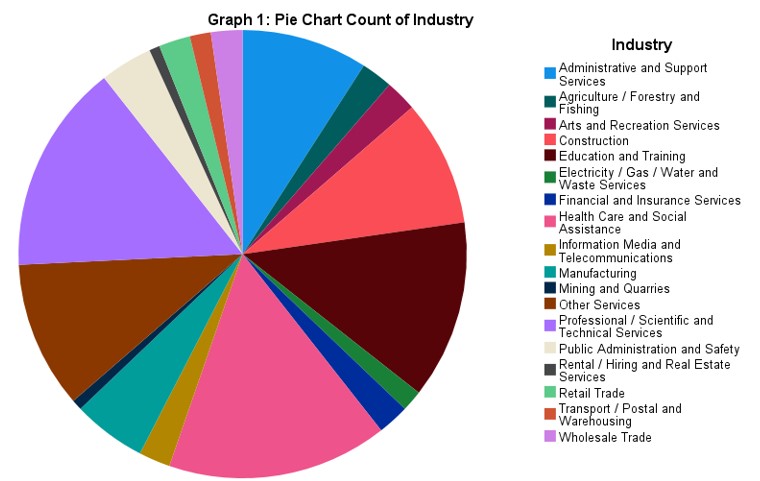
The map below shows the locations of small business teams who have signed up for BeUpstanding. As can be seen, participation has been from across Australia with one third of small business teams located in a regional or rural area (33%).
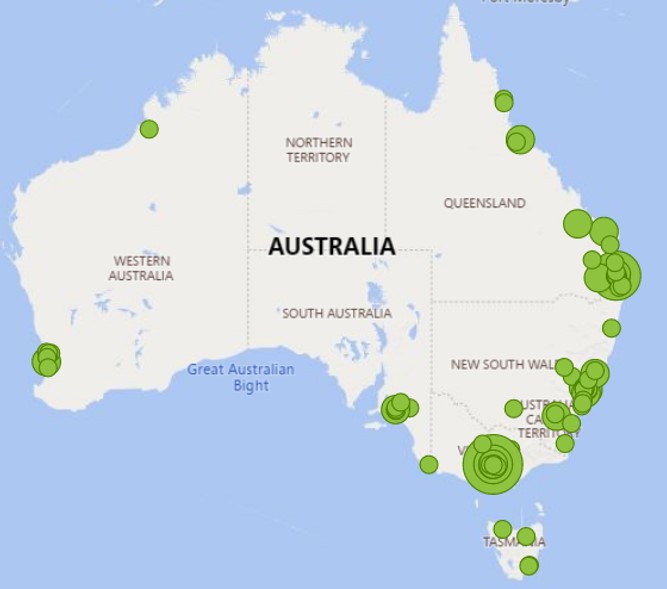
The majority (80%) reported that they were not currently participating in any other workplace wellness/health promotion program. This reflects research that small businesses are less likely to participate in health promotion activities. However, the small businesses who do adopt workplace health promotion programs find numerous benefits. They can more easily implement these programs with reduced bureaucracy compared to larger organisations. Moreover, with a smaller staff team, individual health preferences could be taken into account. The smaller, more intimate workspace creates greater accountability where colleagues can support each other in their health goals. The focus on wellness can have positive impacts on team building and bonding opportunities. Small businesses who adopt workplace health promotion programs can find a higher proportion of their staff participate compared to larger organisations.
Characteristics of the small business workplace champions
The BeUpstanding approach is based on supporting a workplace champion to take up, implement and evaluate the BeUpstanding program within their work team, with the online program providing a step-by-step guide with associated multi-media resources to support the champion. Champions tend to have a passion for staff health and wellbeing and play a key role in the success of the BeUpstanding program. On average, champions from small business teams were in their mid-40s, with ages ranging from 20 to 70 years. Most small business champions were females (72%). This aligns with previous research showing more women expressed interest in movement related wellness programs.
Small business champions were represented evenly across job classification levels: 33% employees, 31% team leader / middle management and 32% senior management / executive. This Australian finding could provide support for research that highlight the fluid nature of job roles in small businesses where a staff member could take on multiple roles within the organisation e.g. management and occupational health and safety. Additional data showed that most small business champions had a Health and Safety (OHS) role in their workplace (63%). While nearly two thirds (63%) of small business champions had prior training in workplace health programs, over half (55%) of champions did not have prior experience in delivering and/or evaluating a workplace health program. Research on occupational health and safety programs found most small businesses had limited access to OHS resources and expertise. BeUpstanding attempts to address these access challenges by offering a low or no cost program, evidence-based research, and workplace relevant resources on an online platform for small business champions to access from across Australia.

Champion Assessment of Work Team Characteristics
As part of the preliminary survey, champions were asked about some of the characteristics of their work team. The majority (84%) assessed their team as doing primarily desk-based work, while nearly half (45%) stated that everyone (or nearly everyone) in their team had job roles that included a lot of sitting. Additionally, most BeUpstanding small business champions rated their team’s current level of stress at work as moderate (66%) or high (19%).
Many of the BeUpstanding small business champions thought their team had a moderate interest (44%) in health and wellbeing, while 42% thought their team had a high or very high interest. Approximately three-quarters (74%) of champions rated their teams as being at least moderately motivated to sit less and move more at work, while over half of champions agreed or strongly agreed that their team and workplace had the skills and expertise to implement a wellness program (66%); could manage the politics of implementing a wellness program (66%); and could recruit people to participate in their wellness program (65%). These assessments and beliefs could be supported by a workplace and managerial culture that encourages workplace health promotion activities. Managerial support is a key facilitator in the success of sustainable health promotion programs in small businesses.
The Australian small businesses and champions, who have registered their interest with BeUpstanding and/or are taking part in our national implementation trial, are joining the movement against prolonged sitting behaviour in a proactive way. Their champions show an desire to bring about positive health change for their teams who are highly sedentary and have noticeable daily stress levels, which is likely to be exacerbated by the global pandemic and increased work from home scenarios. Champions with managerial roles have also demonstrated a visible commitment to the health and well-being of their staff.
To Australian small businesses who are thinking about joining our cause, please get in touch with us! The BeUpstanding team are dedicated in supporting Australian small businesses sit less and move more for staff health and wellbeing. Our friendly team will answer your questions and guide you through our process. You are also welcome to visit our BeUpstanding website and register your interest. It will unlock a suite of great resources and tools for you to explore. Start your business, team, and staff wellbeing journey today!
![]()





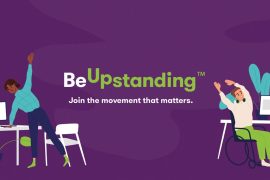

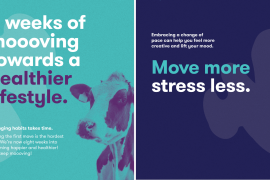
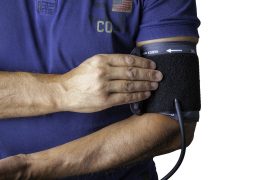

Comments are closed.